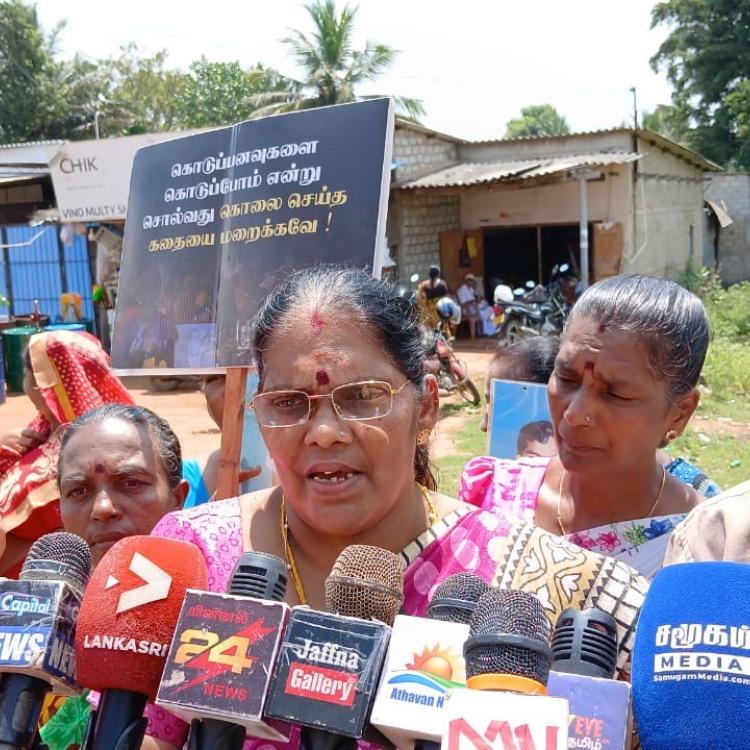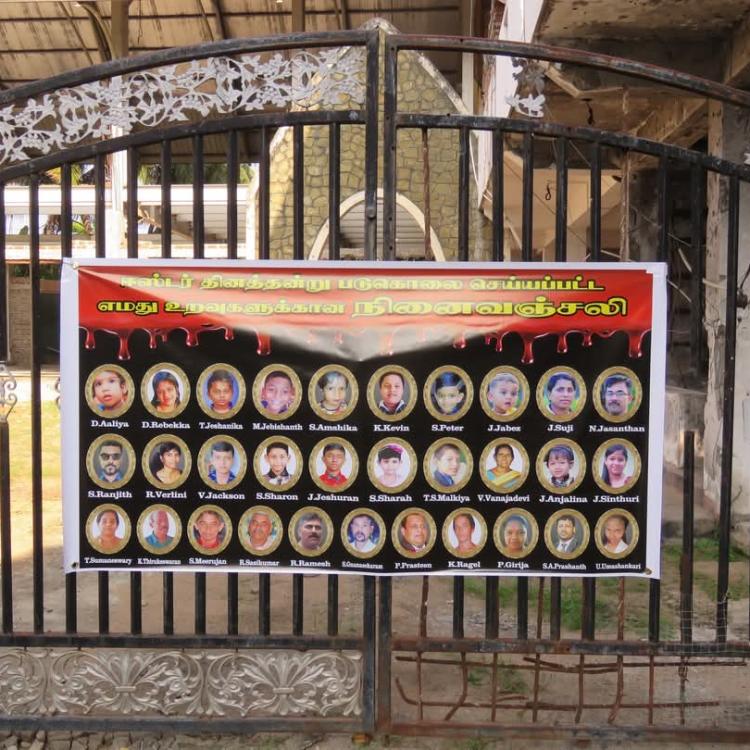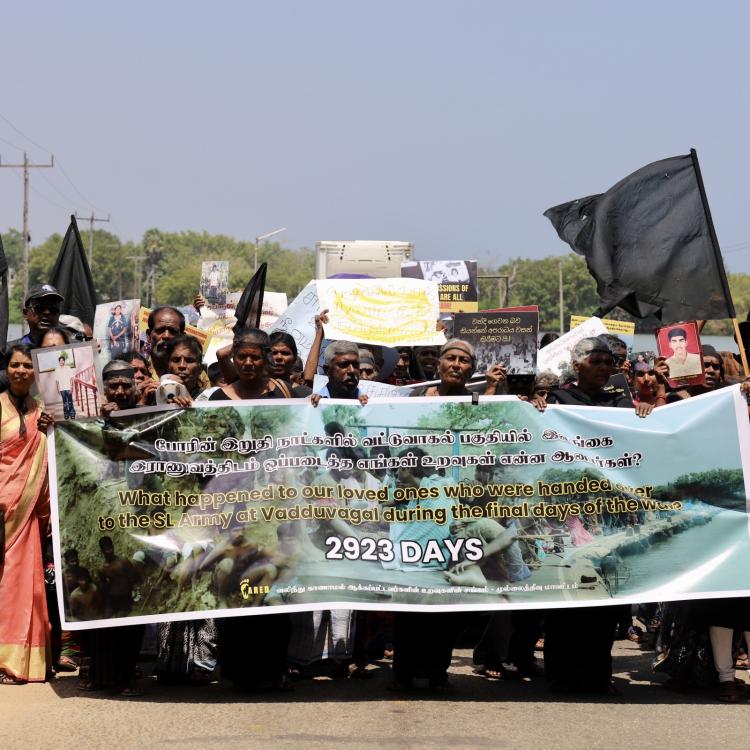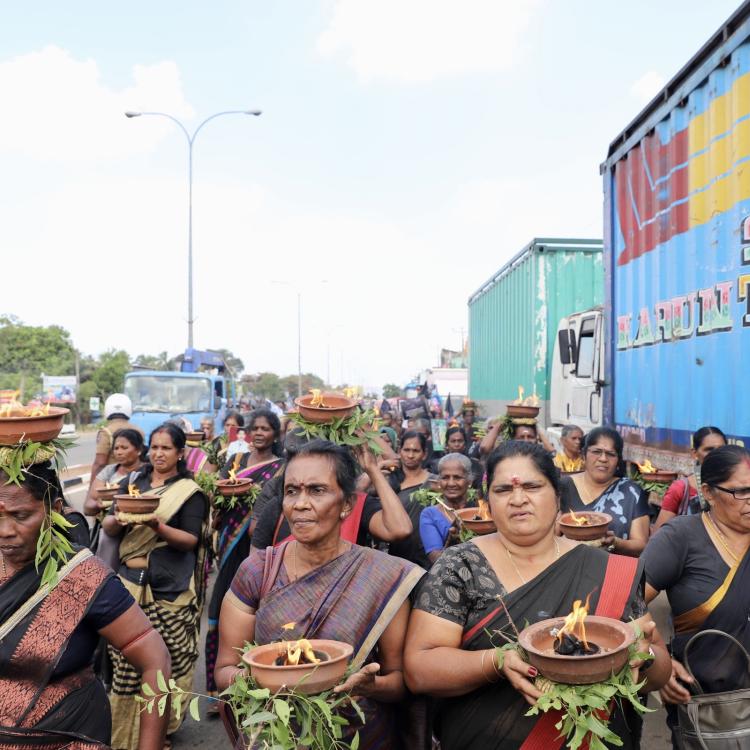
Amalanayagi Amalraj, President of the Association of Families of the Forcibly Disappeared in Batticaloa District, has accused the Sri Lankan government of deliberately suppressing the struggle of Tamil families searching for their disappeared loved ones, by shifting the issue into bureaucratic obscurity.
Speaking in Batticaloa, Amalraj stated that families had reached “a point of desperation,” where they felt they had no option left but to continue demanding answers about the fate of those forcibly disappeared, particularly during Mullivaikkal genocide of 2009. Despite the recent change in government, she warned that the promises of justice remain unfulfilled and that the Tamil community had once again been “betrayed.”
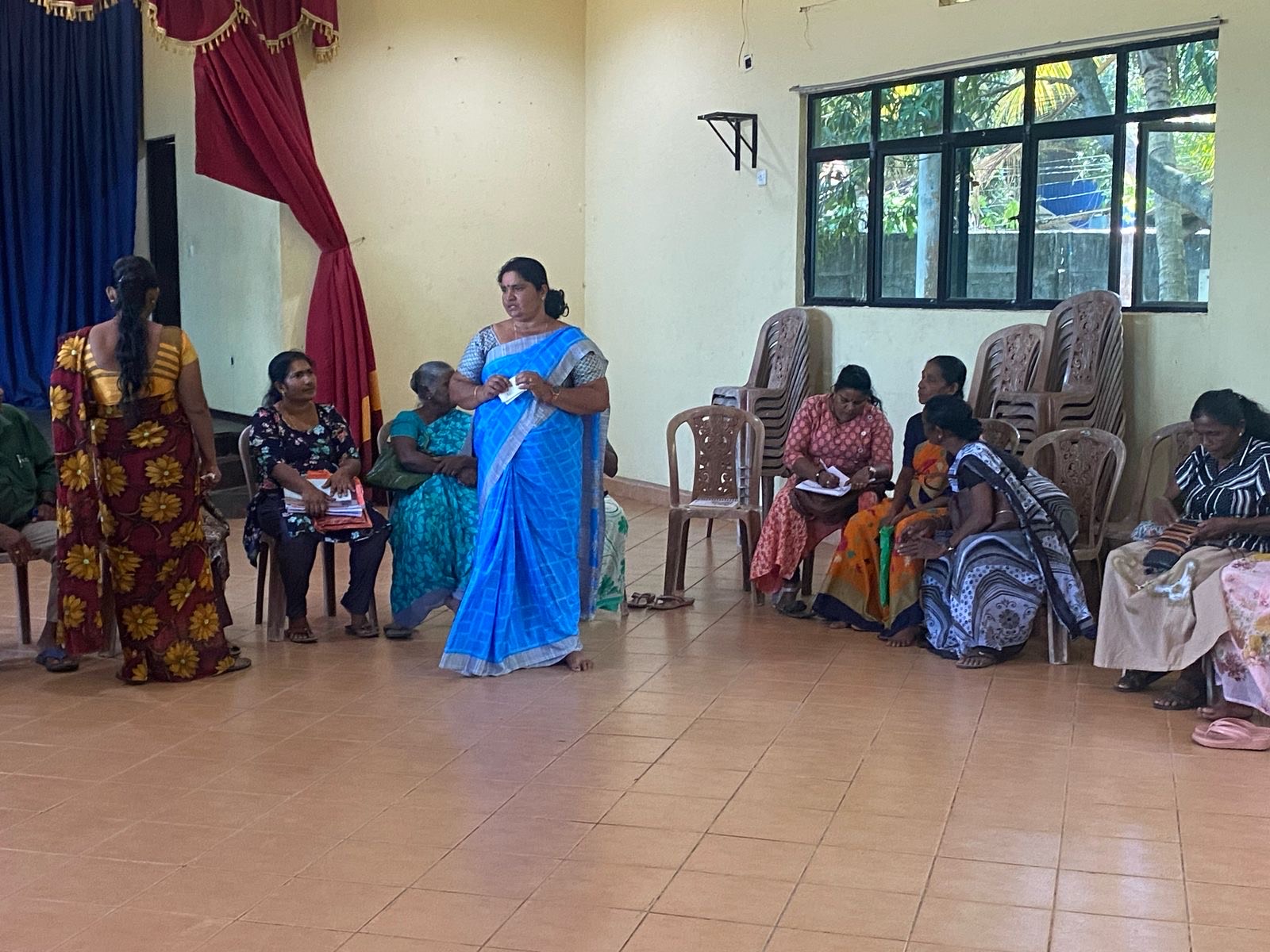
She cautioned the public not to be misled by appearances of progress under the new Anura Kumara Dissanayake administration. A new administration does not mark the end of our struggles, she said. Instead, Amalraj alleged that the Dissanayake -led government was adopting an even more insidious strategy than its predecessors, not only by failing to act on their pledges, but by actively co-opting and sidelining grassroots struggles.
Those who rose to power promising to resolve enforced disappearances and deliver justice have done nothing more than oversee the conduct of three elections, she charged.
Rather than initiating a genuine accountability process, Amalraj accused the Sri Lankan government of “deliberately attempting to dilute the struggle” by transferring it to the bureaucratic Office of Missing Persons (OMP). Tamil families across the North-East, including in Kilinochchi and Mullaitivu, have long rejected this state mechanism, citing its ineffectiveness, lack of transparency, and failure to produce results.
What the families demand is not an internal bureaucratic process but international judicial mechanisms, she said. Amalraj reaffirmed that it was through their public and highly visible protests, now lasting more than 8 years, that international attention and pressure had been sustained on Sri Lanka.
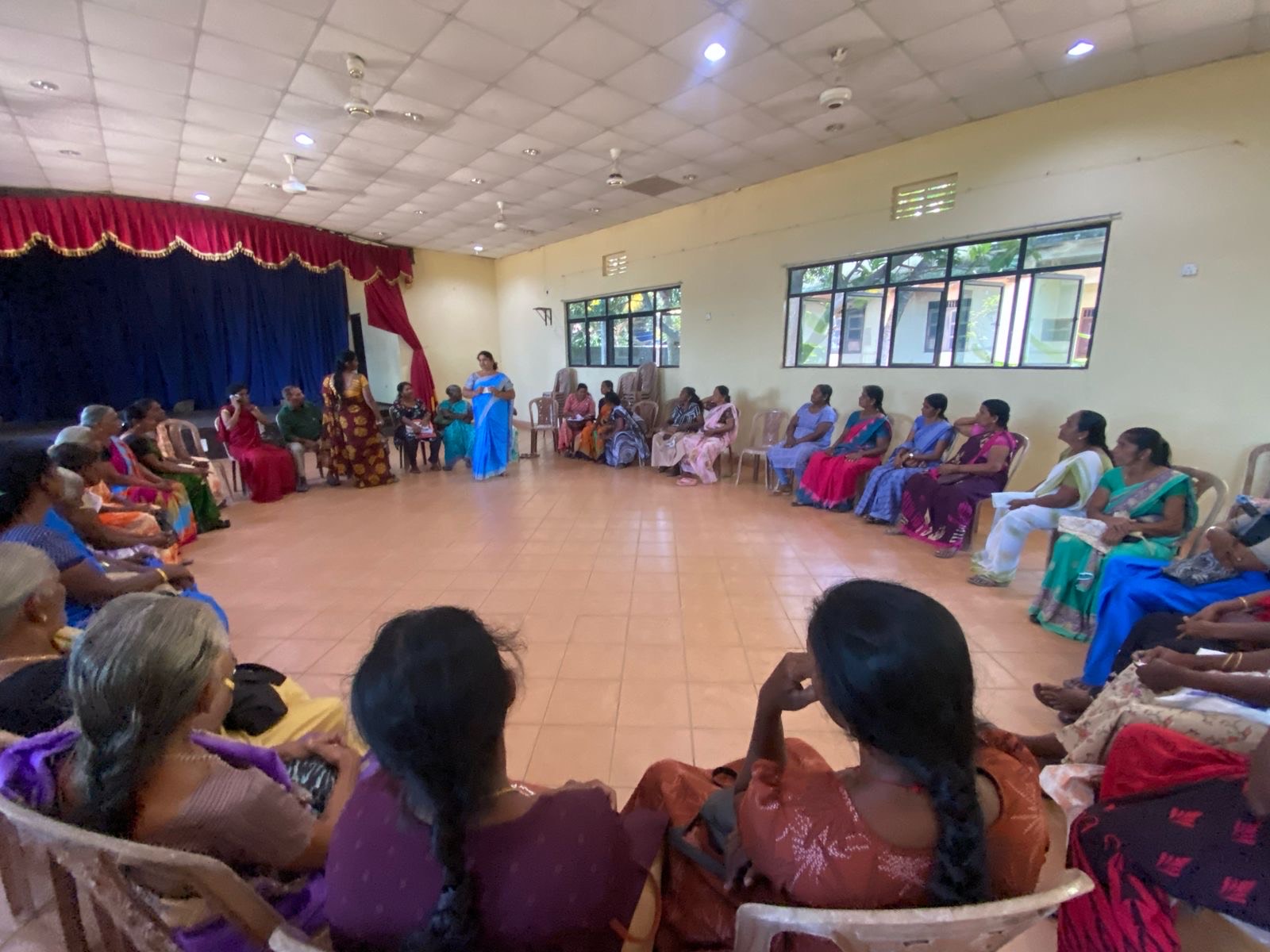
According to Amalraj, the state’s objective was clear: to use the OMP as a means of silencing dissent while projecting an image of justice and reconciliation to the international community. “This is how the Sinhala-led government tries to neutralise our voice,” she said.
She further warned that even the families’ own movements were being infiltrated. Individuals with personal agendas were entering the Association itself, causing emotional distress and division among the already grieving community. These efforts, she alleged, were being enabled by the Anura administration and intelligence agencies, which were shaping “an increasingly oppressive environment.”
Amalraj noted with concern that even some former allies of the struggle had now shifted their positions, helping to create a fragmented movement. Despite these challenges, she declared that the families of the disappeared would not be deterred.
“We are not standing in the streets for ourselves alone,” she said. “We are fighting for the generations to come - so that the injustices and atrocities we endured are never repeated.”
The protest movement by families of the disappeared remains the longest continuous demonstrations on the island, and has consistently highlighted the Sri Lankan state’s failure to account for tens of thousands of Tamil civilians who were handed over or detained by the military and subsequently disappeared.
Repeated calls from families for an independent international mechanism to investigate and deliver justice have so far gone unheeded.

